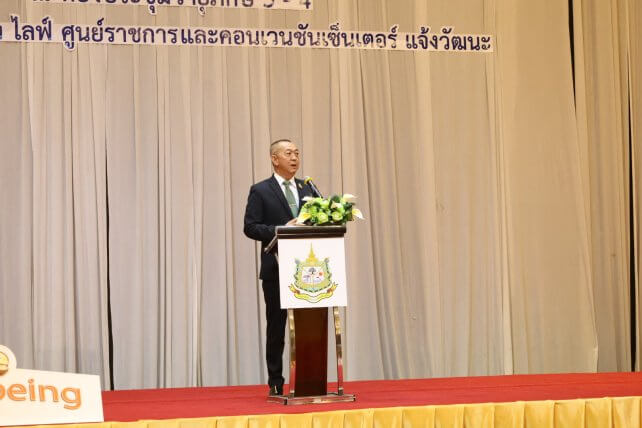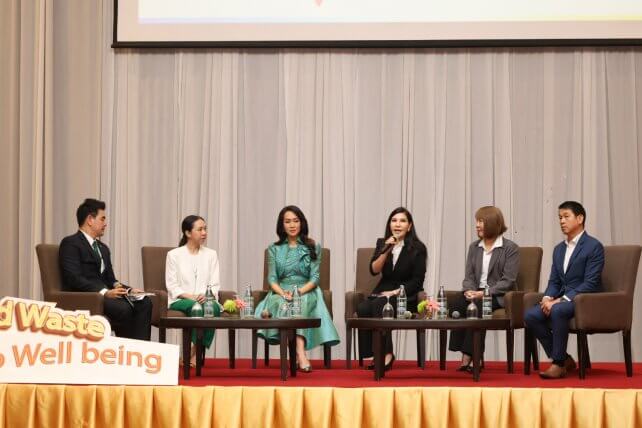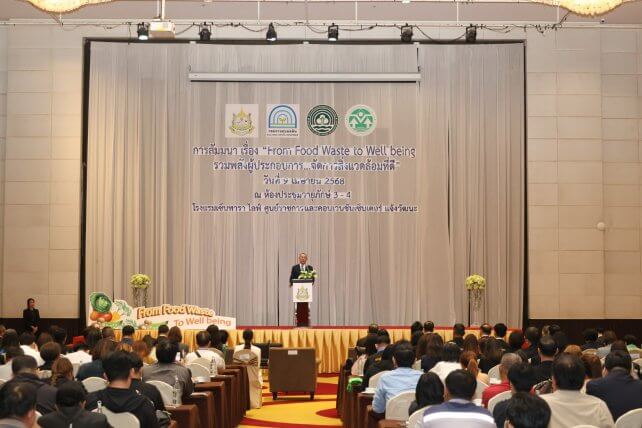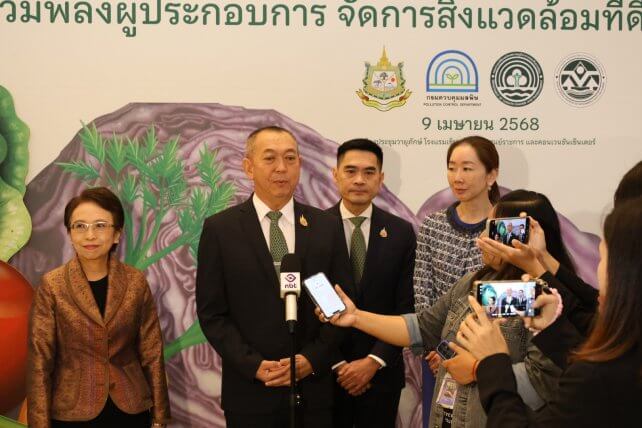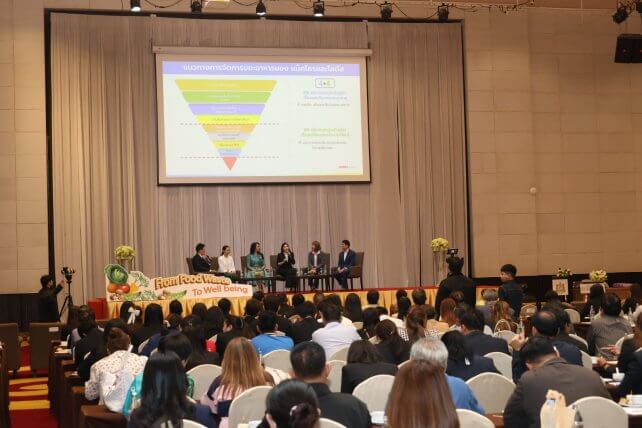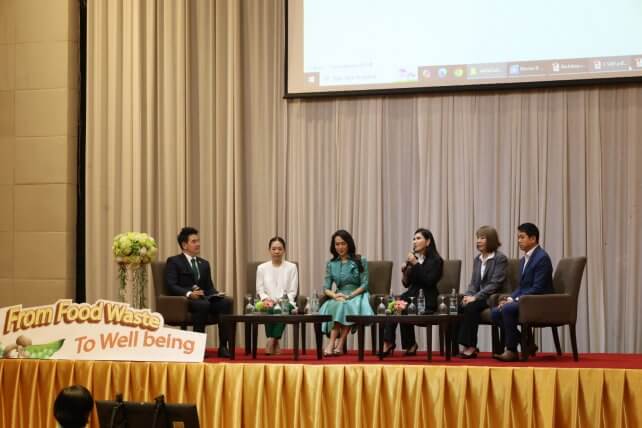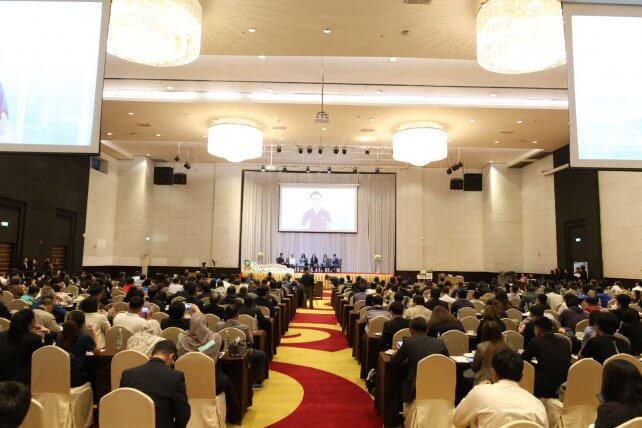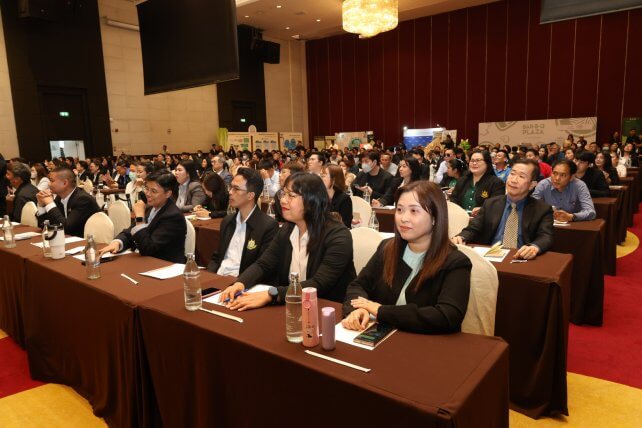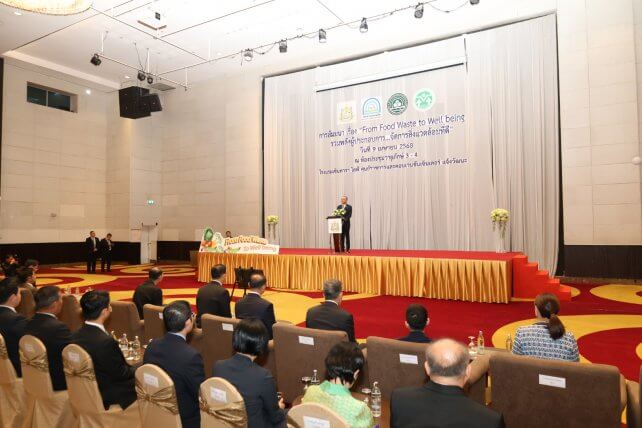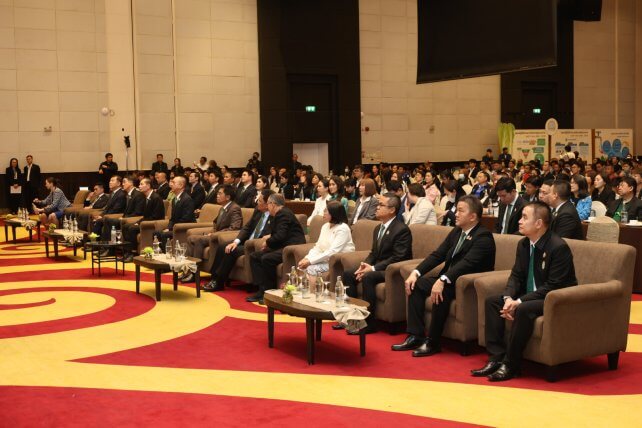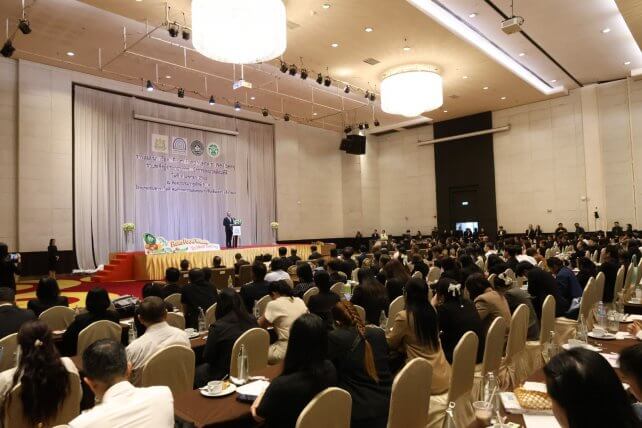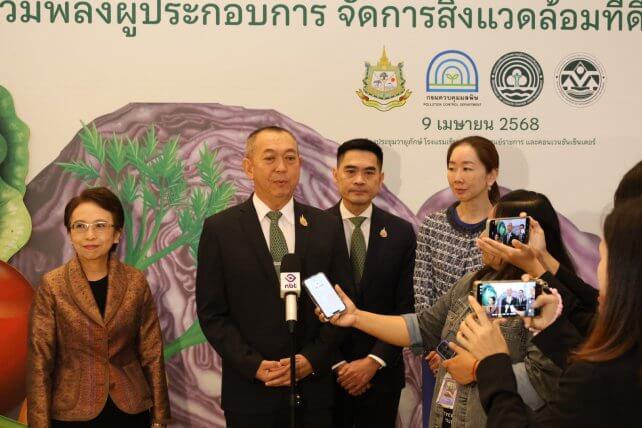
On April 9, 2025, Dr. Chalermchai Sri-on, Minister of Natural Resources and Environment, delivered a policy address on food waste management at the seminar “From Food Waste to Well-being: Uniting Entrepreneurs for a Better Environment,” organized by the Pollution Control Department (PCD), the Department of Climate Change and Environment, and the Office of Natural Resources and Environmental Policy and Planning. The seminar brought together leading hotel, restaurant, department store, and supermarket operators to exchange practical approaches for managing food waste. It was held in the Wayuphak conference room, 4th floor, Centara Life Government Complex Hotel & Convention Centre, Chaeng Watthana, with more than 450 executives and representatives from various businesses in attendance.
Food waste is one of the key contributors to greenhouse gas emissions that lead to global warming. It also represents wasted resources, environmental damage, and a lost opportunity to improve the quality of life for Thai people. According to data from PCD, out of the 27 million tons of annual waste generated in Thailand, more than 10 million tons (nearly 40%) is food waste. Additionally, Thailand produces 11 million cubic meters of wastewater daily from communities, accounting for 43% of all wastewater. Both food waste and wastewater originate from households, consumers, and businesses within communities, posing a significant environmental challenge. The Ministry of Natural Resources and Environment (MNRE) recognizes the need for collaborative management among all sectors involved.
The seminar featured a panel discussion on “Best Practices in Food Waste and Wastewater Management by Entrepreneurs,” with speakers from Food Passion Co., Ltd. (Bar B Q Plaza), S&P Syndicate Public Co., Ltd., CP Axtra Public Co., Ltd., the Royal River Hotel, and the Sukhothai Bangkok Hotel. The session was moderated by Mr. Nithi Samutkojorn (Job). An exhibition showcasing innovations in food waste and wastewater management was also held, featuring 11 booths from various organizations. Food Passion Co., Ltd. (Bar B Q Plaza) presented its in-store food waste management practices, while the National Science and Technology Development Agency (NSTDA) showcased safe methods for surplus food donation. The Royal River Hotel highlighted products created from composted food waste, and The Sukhothai Bangkok Hotel shared its implementation of Green Hotel standards and waste management initiatives. Oklin (Thailand) Co., Ltd. and Microbiotech Co., Ltd. (Cowtech) demonstrated automatic food waste digesters. PTT Public Co., Ltd. introduced technology for converting used cooking oil into biodiesel, whereas BSGF Co., Ltd. (a member of the Bangchak Group) showcased technology for converting used cooking oil into aviation fuel. Additionally, Aqua Nishihara Corporation Co., Ltd., Thammasorn Co., Ltd., and Premier Products Public Co., Ltd. presented source-based wastewater treatment technologies.
Dr. Chalermchai emphasized that food waste is a critical issue that requires integrated efforts to address. It is not the responsibility of business operators alone; awareness must be cultivated starting within families and among youth to ensure long-term sustainability in tackling food waste. Solving this problem requires cooperation from all parties. Without proper education and awareness, the issue will persist. Therefore, food waste management should be treated as a national priority, with ongoing campaigns and actions. He affirmed that both he and MNRE are ready to collaborate with business operators and all relevant sectors to implement effective and tangible solutions.
Dr. Chalermchai further stressed, “Food waste management requires the cooperation of all sectors, not just government agencies. It must begin with reducing and preventing food waste at its source, in order to avoid future waste management problems.”

